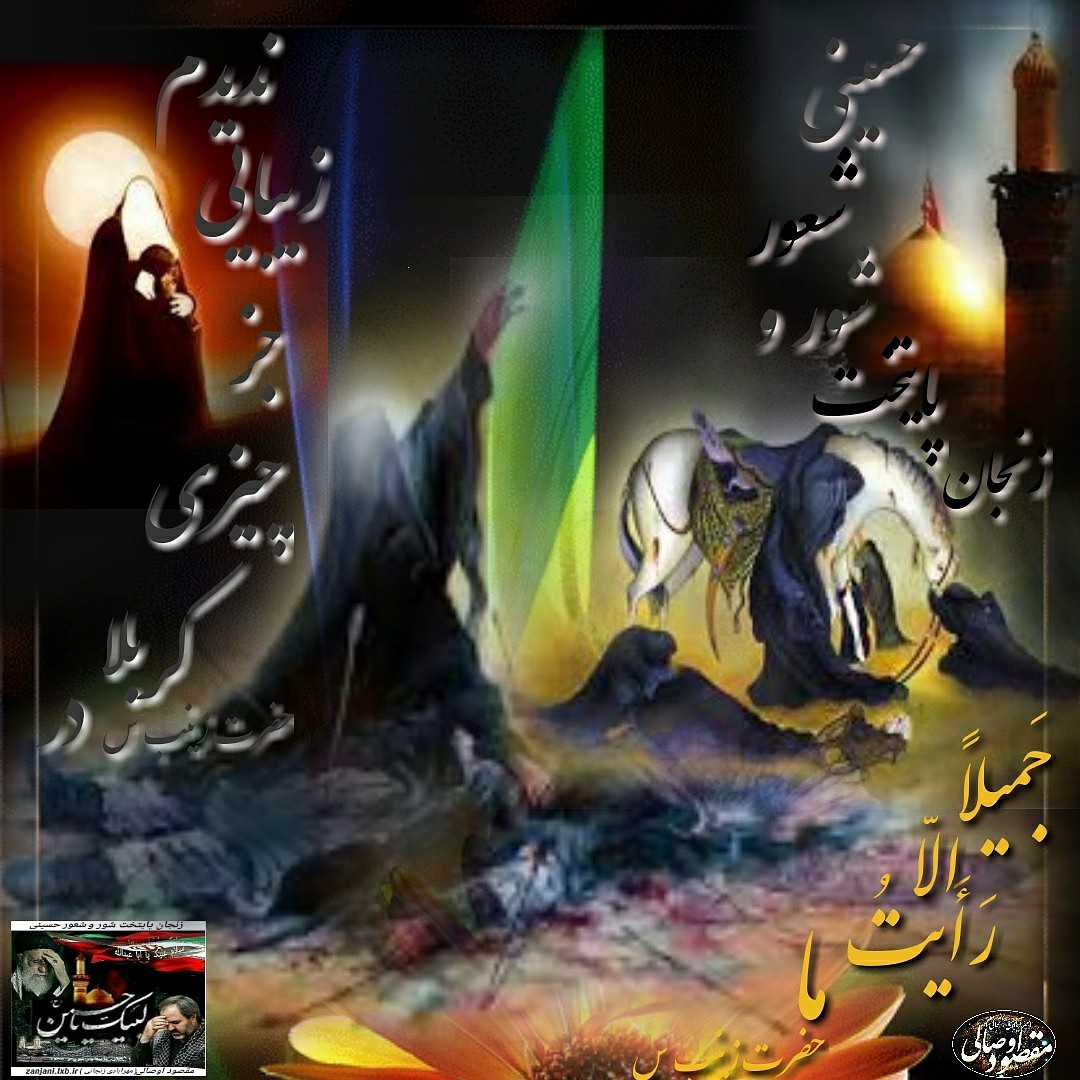سلام علیکم و عرض ادب،مردم شریف زنجان، اینجانب مقصود اوصالی مهرآبادی زنجانی فرزند شما،کاندیدای شورای شهر زنجان ،رأیتان را بر دیدگانم گذاشته،عهد و پیمانم با خدا فقط خدمت به شما مردم عزیز شهرمان زنجان می باشد
ashura.ashura.ashura.ashura.ashura.ashura.ashura.ashura.asura.ashura.mehrabadi.zanjani

In their millions, Muslims have staged passionate mourning ceremonies in commemoration of the day in history that witnessed the martyrdom of the icon of sacrifice to the faithful.
The occasion, known as Ashura, marks the martyrdom of Imam Hussein and 72 of his companions in 680 AD in a land that is known today as Iraq, after they refused to pledge allegiance to the tyrant Yazid.
Ashura is the culmination of a 10-day annual mourning period in the lunar month of Muharram for the third Imam of Shia Muslims, who was a grandson of Prophet Muhammad (Peace be upon Him).
The rituals are observed in ultimate magnificence in the holy cities of Najaf and Karbala in Iraq, the latter of which hosts Imam Hussein's holy shrine.
On Sunday, hundreds of thousands of pilgrims, traveling from India, Pakistan, Afghanistan, Iran, Azerbaijan, Lebanon and many other countries, descended on Karbala, with officials putting their numbers at 6 million.
An Iraqi TV channel said authorities had created a security belt around the holy city to protect it from possible terrorist attacks. In the past, Daesh and other Takfiri groups have targeted the pilgrims on their way to Karbala or carried out bombings inside the city.
Iraqi Shias watch a reenactment of the Battle of Karbala ahead of the annual Ashura events, which mark the martyrdom of Imam Hussein, the third Shia Imam, in the southern city of Basra on September 29, 2017. (Photo by AFP)
Across Iran, millions of mourners started the processions shortly after the sunrise, lining up in coordinated and orderly bands of passion plays and recitations of elegies which continued until the afternoon.
Sunni Muslims in the Iranian provinces of Kurdistan and Sistan and Baluchestan as well as devotees of other faiths such as Armenians joined Shia mourners, distributing free food in a show of solidarity.
Ashura is also an occasion for unity when Iranians of all ethnic backgrounds, including Azerbaijanis, Arabs, Kurds, Lors, Baluchis and Turkmen, commemorate it in their local languages and dialects.
On Saturday, huge masses in Iran and other countries such as Pakistan and Yemen held mourning rituals on the ninth day of Muharram to mark Tasu’a, the ninth day of lunar month.
In Iran, devotees in cities, towns and villages across the country listened to elegies recounting the indescribably tragic events in the Battle of Karbala during which Imam Hussein and some members of his family and his companions were brutally massacred.
More than 5,000 people marched through the center of Sydney, slapping their chests in a sign of grief. A procession of mourners marched down Wilmslow road in Rusholme, south Manchester, joining other devotees across the world to mark the occasion.
The Battle of Karbala between a small group of supporters and relatives of Imam Hussein and a larger military detachment from the forces of the Umayyad caliph represents the war as one between good and evil.
ادامه امطلب...»
Copyright 2010 - zanjani.loxblog.com & Designer:

 آمار
وب سایت:
آمار
وب سایت: